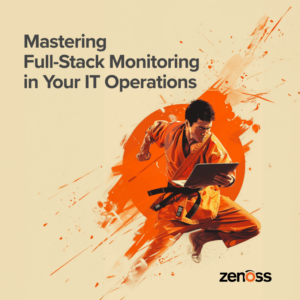There is no doubt that OpenStack is a red-hot open source project that has garnered the attention of industry titans such as Intel and Cisco. Furthermore, OpenStack found additional stability when Anso Labs, the “brains behind Nebula” and key contributors to OpenStack, was purchased by Rackspace in early 2011. Thankfully, Rackspace has been cognizant of the open source community and has shown no public signs of seizing control of the project.
The end result is OpenStack continues to make impressive strides toward providing a massively scalable Cloud operating system. With the release of Cactus, OpenStack now supports eight host virtualization technologies including KVM, Hyper-V, and VMware. Additionally, OpenStack is working toward Network as a Service (NaaS) and perhaps we’ll see the integration with the burgeoning of the Open Networking Foundation’s OpenFlow specification.
Whatever the altruistic intentions of OpenStack’s initial beginnings, the reality is someone is going to profit from the development efforts of this growing open source community. While Red Hat commercialized Linux and Cloudera is commercializing Hadoop, who will commercialize OpenStack? We know that Rackspace, NTT, and others will commercialize OpenStack for their public clouds but what about private clouds?
Some may argue commercialization is irrelevant, but it is the only path towards mainstream acceptance and viability, especially within the Enterprise. Furthermore, hybrid Cloud architectures demand interoperability between pubic and private Cloud offerings. Workloads will need to be seamlessly orchestrated across these different Clouds independent of the physical hardware or hypervisor layers. Who will provide support, guarantee interoperability, security, and upgradeability to this vital nerve center of your IT infrastructure?
A short list of contenders includes Cloud.com, a founding member of OpenStack, and Rackspace. Cloud.com turned one year old in May and offers CloudStack Enterprise and Service Provider editions. However, there are some perceived “tensions” between Cloud.com and OpenStack, as Cloud.com is written in Java while OpenStack’s is written in python. Additionally, Cloud.com has a hidden gem within their CloudBridge product that supports API compatibility between CloudStack and Amazon Web Services.
On-the-other-hand, there is Rackspace a visionary and leader in Cloud hosting that is famous for their “Fanatical Support”. Although it would be a departure for Rackspace to commercialize OpenStack via a traditional software model, the purchase of Anso Labs provides them with unique capabilities. Thus, Rackspace is offering Cloud Builder services that provide design, training, and full support for OpenStack within your own datacenter. Furthermore, Cloud Builders is a perfect entry into building hybrid Cloud architectures as Rackspace provides both pieces to the puzzle; private Cloud and Public Cloud both built on OpenStack.
Hey now, what about Canonical, Citrix, and Cloudscaling? Also, how about solutions such as Piston, Inc? Also, isn’t Dell’s part of this equation with UEC? Yes, all the aforementioned companies are contenders and there are others that have not been mentioned in this article. The fact is I expect more OpenStack based companies to appear and consolidation is inevitable within this space.
To sum it all up, as the open source community works to complete OpenStack and expand into new directions, there is a race toward commercialization that leads to financial rewards. In essence, whoever provides the Enterprise with a smooth path to the hybrid Cloud wins.







